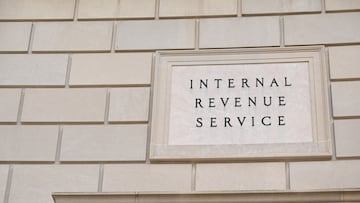How many American millionaires have not paid taxes in recent years according to the IRS?
Given new resources from the Inflation Reduction Act the IRS has now recovered over $1 billion from wealthy individuals who have not paid taxes since 2017.

This week, the Internal Revenue Service (IRS) reported that, thanks to the initiatives of the Inflation Reduction Act, it has been possible to ensure that wealthy individuals pay their taxes owed.
The tax agency announced that it has been able to recover $1.3 billion thanks to an initiative to go after 125,000 wealthy and high-income taxpayers who have not filed taxes since 2017.
The IRS obtained information from third parties, using Forms W-2 and 1099, to determine that these individuals received income between $400,000 and $1 million or more than $1 million, but did not file a tax return.
These measures were made possible because the Inflation Reduction Act provided more funding to dedicate case officers and now, the IRS has the capacity to execute the program for non-filers that was previously implemented sporadically.
TUNE IN as I deliver remarks in Austin, Texas on IRS improvements and our efforts to crack down on high-end tax evasion. https://t.co/2K5ce1MKxe
— Secretary Janet Yellen (@SecYellen) September 6, 2024
You may be interested in: What does Trump’s proposal to eliminate the Social Security tax for seniors consist of?
This is how the IRS has recovered unfiled tax money from wealthy people
After successfully collecting $38 million from more than 175 wealthy, high-income individuals last year, the IRS expanded the effort last fall to about 1,600 additional high-income individuals. Nearly 80% of the 1,600 millionaires with delinquent tax debts have already made a payment, resulting in the recovery of more than $1.1 billion.
On the other hand, in the first six months of the new initiative introduced in February, almost 21,000 of the 125,000 wealthy taxpayers have filed their returns, resulting in the payment of $172 million in taxes.
IRS introduces Digital First Initiative to improve taxpayer service
Thanks to the new budget funding, the tax agency has also been able to implement the Digital First Initiative to significantly improve taxpayer service in person, by phone and online.
Related stories
The IRS has launched more digital tools in the past two years than in the previous 20 years, including:
- More than two dozen new features and enhancements for the individual and tax professional online accounts
- The launch of the Business Tax Account
- The launch of 30 mobile-friendly digital forms
- The ability for taxpayers to receive the status of their refund through a conversational hotline
- A mobile-friendly web tool for Where's My Refund?
- Direct File, a new tool that allows taxpayers to file their returns for free, directly with the IRS.
On the other hand, through the Digital First Initiative, the IRS seeks to allow taxpayers to carry out all their transactions digitally if they prefer. Now, with their individual account, taxpayers can:
- View the status of refunds and certain audits.
- Access a complete overview of your account information, including detailed historical data.
- Access identity protection services, a lien settlement calculator, and the ability to complete the pending payment agreement process using smartphones or tablets.
- Retrieve tax-related information from a single source, including digital copies of notices and letters, with more than 170 different types of notices and letters available.


Complete your personal details to comment